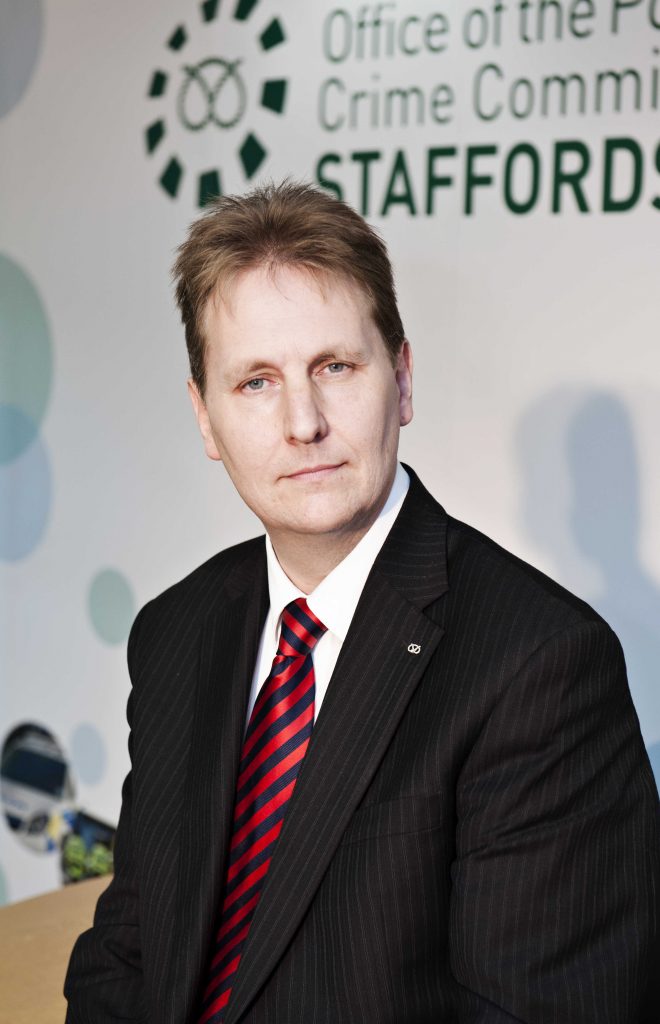Matthew Ellis, Staffordshire’s Police and Crime Commissioner, has welcomed a report which looks at people’s experiences of care during a mental health crisis – and called on agencies involved with mental health across the county to do even more to deal with the issue.
The Care Quality Commission’s ‘Right Here, Right Now’ report paints a picture of health and care services often struggling to provide the right response to people in crisis, while finding that the police often get more positive feedback despite not being mental health specialists.
In 2013, Mr Ellis commissioned a Staffordshire Police study on what lay behind the large number of people in mental health crisis ending up in police cells because it was the only option.
The resulting “Staffordshire Report” was highlighted by the Home Secretary in her 2013 speech to the national Police Federation conference as an important insight to the reasons that lay behind the practise.
Mr Ellis called for urgent action, claiming the situation was ‘wholly unacceptable’ and in 2014 he established a high level multi-agency working group, which included Health, to reduce urgently the use of police cells in cases of mental health.
This cross-agency approach led to significant improvements and has seen the number of people in crisis who end up in police cells in Staffordshire fall by almost two-thirds – from 169 in 2012 to 59 in 2014.
A successful community triage scheme which has seen police and mental health professionals work together in North Staffordshire will be available across the whole county from August. Advanced training has also been given to police officers so they are better equipped to deal with people in mental health crisis when needed.
Mr Ellis said: “The cross-agency working has resulted in significant improvements in Staffordshire and Stoke-on-Trent, as shown by the drop in the numbers of people in a mental health crisis being held in police custody. It shows that with a clear plan and an understanding that joined-up working across agencies is essential, real progress is possible. The concordat I asked all partners to sign has supported that approach effectively.
“There are signs, however, of slippage in some mental health services in Staffordshire which is again leaving cells to be used as places of safety. We have all agreed that individuals in mental health crisis should not end up in a cell when no crime has been committed and it’s important that action is taken immediately to address this regression.
“The CQC Report states there is much more to do and health and care services must do better. In Staffordshire and Stoke-on-Trent, these services are not as responsive as they should be. When a crisis occurs in the middle of the night, health and social care is not always easy to access and for some people – even those who voluntarily ask for help – there’s often nowhere to go to get the help and support they need.
“I recognise that further improvements are planned, but this report is a timely reminder that those who signed up to the agreement in 2014 must step up and make sure that the response to those who are mentally ill is as good as it would be to those who are physically ill. At present that parity simply does not exist.”



